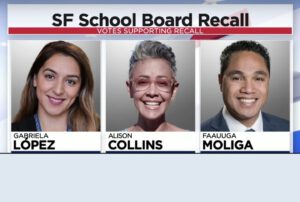California voters approve $10B school bond; mixed results on bond measures elsewhere
California voters have approved a $10 billion school bond, despite warnings repayment could take decades.
On Tuesday, California voters approved Proposition 2 by a 57% to 43% margin.
Prop 2…

California voters have approved a $10 billion school bond, despite warnings repayment could take decades.
On Tuesday, California voters approved Proposition 2 by a 57% to 43% margin.
Prop 2 authorizes the state to borrow $10 billion “for repair, upgrade, and construction of facilities at K-12 public schools (including charter schools), community colleges, and career technical education programs, including for improvement of health and safety conditions and classroom upgrades.”
However, critics say the price tag is way too steep – especially since the bond will accumulate billions more in interest.
“Now that nearly a half million kids have left the public schools, we’ll be closing more schools than we would build with $10 billion in borrowed money plus the other $10 billion in interest costs for that money,” Lance Christensen, vice president of education policy and government affairs at the California Policy Center, told The Lion.
“Rather than spend that money, perhaps the Legislature should work on reducing the costs of construction in California and ask school districts to pass their own bonds.”
California Assemblyman Bill Essayli, R-Riverside, also argued against it.
“With rampant inflation and the highest gas and graduated income taxes in the nation, [California] already has over $109 billion of outstanding and unissued bonds alongside almost $200 billion of unfunded pension liabilities and retiree medical benefits – over a quarter trillion dollars,” he wrote. “Children in school today will be drowning in new debt for decades if Prop. 2 passes.”
But California isn’t the only place where voters approved expensive school bonds.
Denver voters authorized a $975 million bond to install air conditioning units, buy new buses and fund various other upgrades. The measure passed 74% to 26%.
And Iowa voters approved four bonds for a total of $150 million.
However, not everyone was willing to rubberstamp additional school funding.
Houston voters shot down two bond proposals that would have totaled $4.4 billion. Local political analyst Brandon Rottinghaus said neither political party showed enough support for the bond.
“The problem for Democrats is that they didn’t have the consensus to fix the schools that they wanted in the way they wanted,” he explained. “The problem for Republicans was that they just don’t trust the system to work the way it should, and they don’t like extra taxes from these bonds.”



